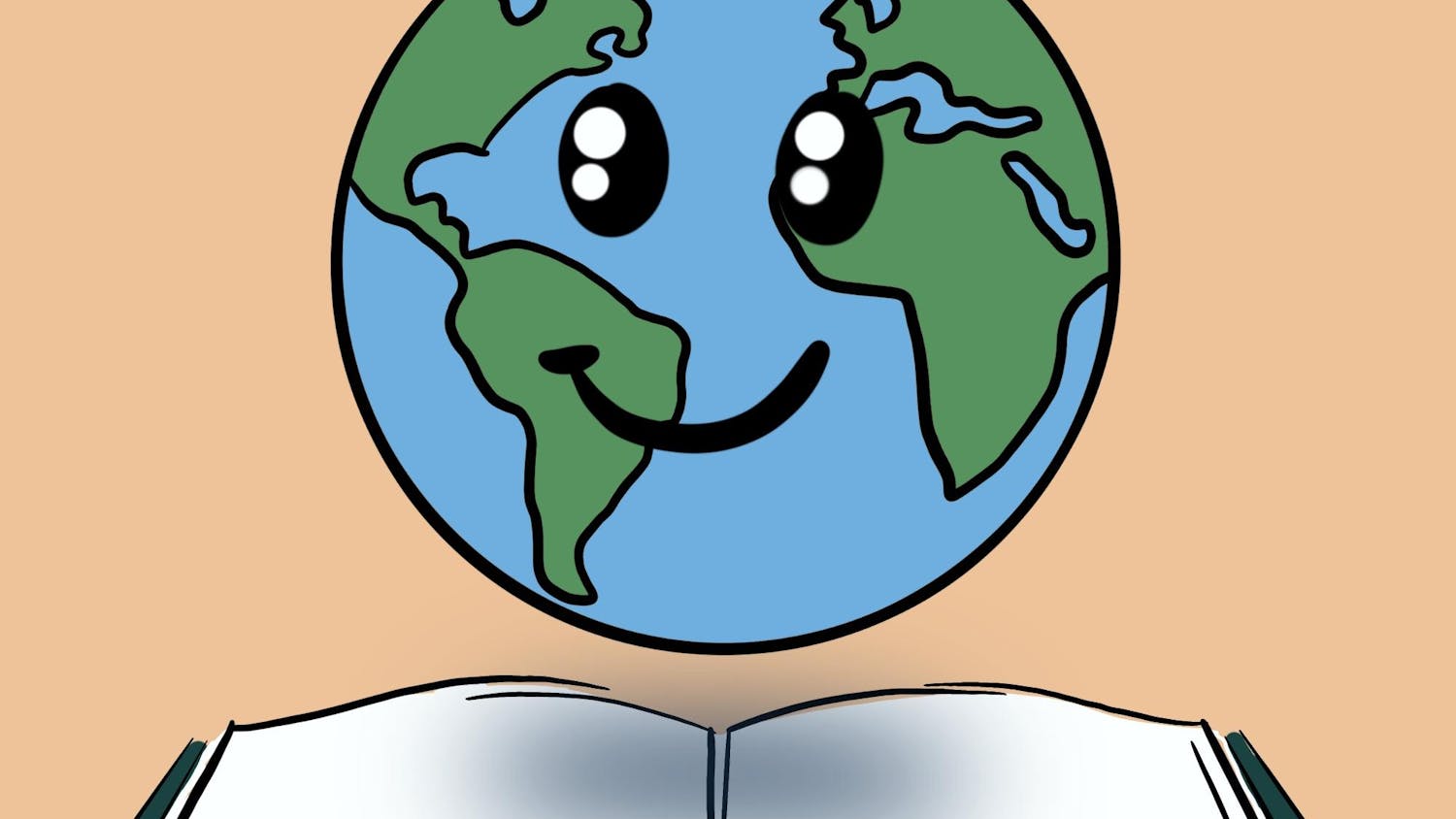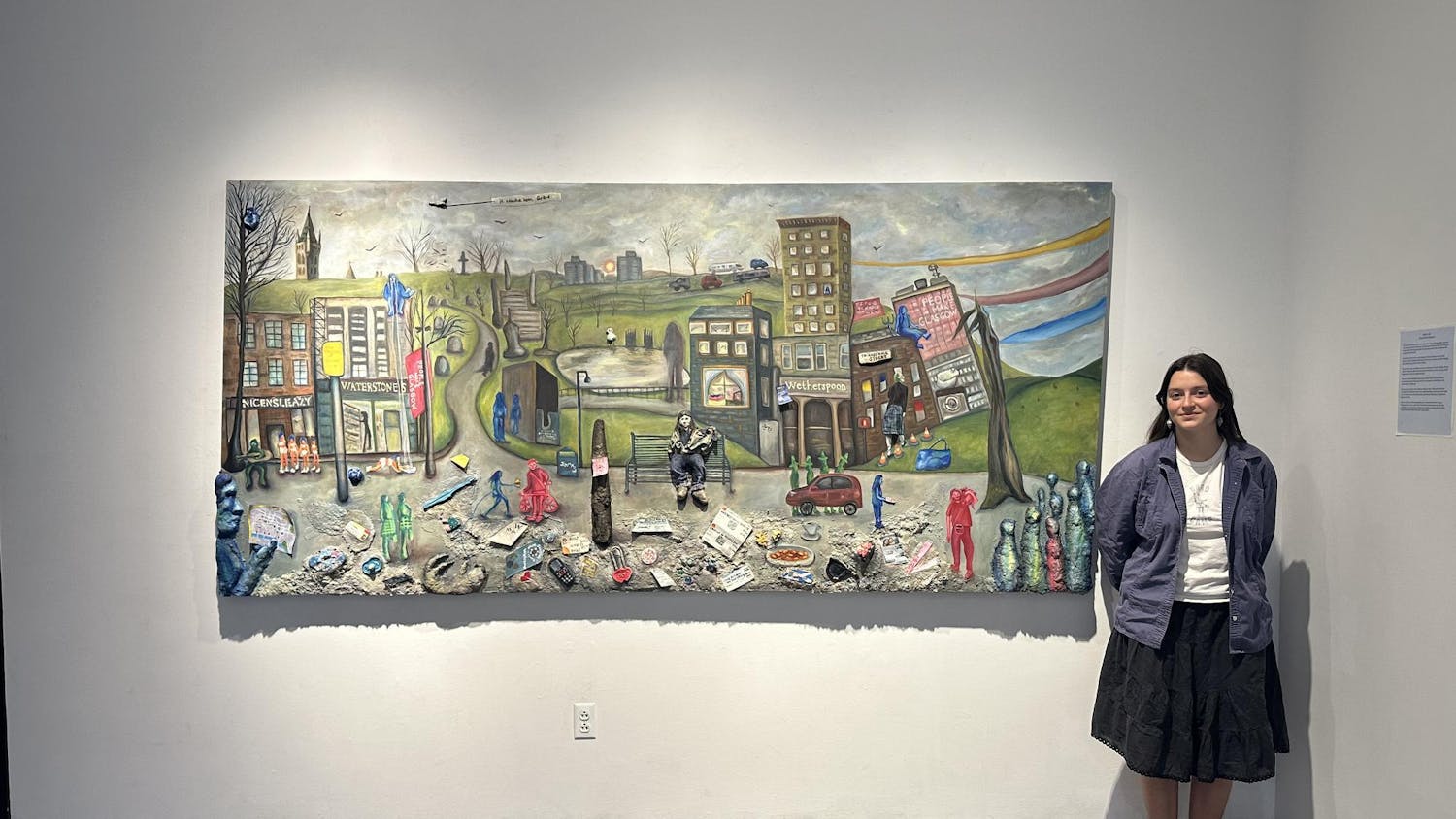‘Colorless Tsukuru Tazaki and His Years of Pilgrimage’ | Haruki Murakami | Knopf
The Royal Swedish Academy shocked bettors across the world Thursday when it awarded the 2014 Nobel Prize in Literature not to Murakami, who was largely thought to be a shoo-in, but to Patrick Modiano.
Part of this surprise is due to the worldwide cult following Murakami has garnered with his surreal, Kafkaesque style in books like “The Wind-Up Bird Chronicle” and “1Q84.” The most recent addition to the Murakami canon, selling over one million copies in Japan within a week of its release, is one deeply rooted in trauma, relationship and the memories from which the present self inherits its colors.
Years ago, the protagonist, Tsukuru, was inexplicably dumped by the friend group he had considered his family throughout adolescence. He has never been able to wash out the aftertaste of loneliness and confusion from this ordeal, and his lingering self-doubt gradually grows into a vague, shadowy death wish.
But veins of color periodically inject back into his life: An intense but transient friendship leaves him with the saving grace of Franz Liszt’s music, and a new girlfriend surprises him with her acuity and aptitude for asking the right questions. He finally tracks down his now-scattered friends to seek some closure on his sudden rejection, uncloaking a narrative colored by broken minds and broken hearts.
‘A Girl is a Half-Formed Thing’ | Eimear McBride | Coffee House Press
In interviews, McBride has recalled how she read James Joyce’s “Ulysses” at the age of 25 and immediately turned over a new leaf in her writing style. She churned out “A Girl is a Half-Formed Thing” in under a year, then spent nearly a decade trying to get it published. Now that she’s succeeded on that front, reviews are hailing the thematically poignant, stylistically experimental work as an instant classic.
The influences of her Irish literary forebears — most notably Joyce, but also Samuel Beckett and Patrick McCabe — loom large in the book’s familial tropes, with the 14-year-old narrator’s oppressively religious household peopled with a raging mother, a sick brother and a predatory uncle.
Within this paradigmatic framework, McBride breaks the mold with her raw yet resilient voice. This is not a book for readers who believe anti-grammar cannot be an art form. The fragmented sentences lacerate with visceral imagery, at times reading more like a prose poem than a novel. This is also not a book for the faint of heart, as the garbled syntax does little to cushion — and in fact may even heighten — the impact of its graphic themes, which include sexual assault and mental illness.
But for all its syntactical curveballs, the writing is highly crafted on a micro-level. There is richness in its internal rhymes, its perfectly made-up words for those moments when language fails — “miracly,” “inthespring” — and its continuous cadence, cycling between the throb of an open wound and a lilting ecstasy of music.
‘On Immunity: An Inoculation’ | Eula Biss | Graywolf Press
At a time when the vaccination debate is reaching fever pitch, leave it to the redoubtable Biss, whose “Notes From No Man’s Land” earned her a 2010 National Book Circle Award, to step in with a cool and contemplative compress.
Biss’s overarching conclusion is predictably pro-vaccine. But what makes her argument so fresh and resonant is her careful, compassionate dilation of space for what the opposing side feels is at stake. She defends, if not the logic of paranoia, then its interests, recounting the obsession with doing things “naturally” that marked her own traumatic entry into motherhood. Discomfort with the idea of vaccination is far more complicated than willful ignorance, she argues, and in fact stems from deeply human anxieties that, for a slew of reasons, are perhaps inseparable from medicine itself.
But she also ushers in a logic that, while gentle, is ineluctably weighted. She draws on science, of course, but she recognizes that hard data is not a universal currency. And so she steeps her writing in the history of disease, the etymologies of its myths and metaphors and collated insights from centuries of cultural analysis from the likes of Voltaire and Susan Sontag. Through deftly woven narrative, research and reflection, Biss presents a touching commentary on our shared vulnerabilities, the permeable boundaries between the individual and its global community and the social responsibility this interconnectedness imbues — all in time for flu season.
ADVERTISEMENT




